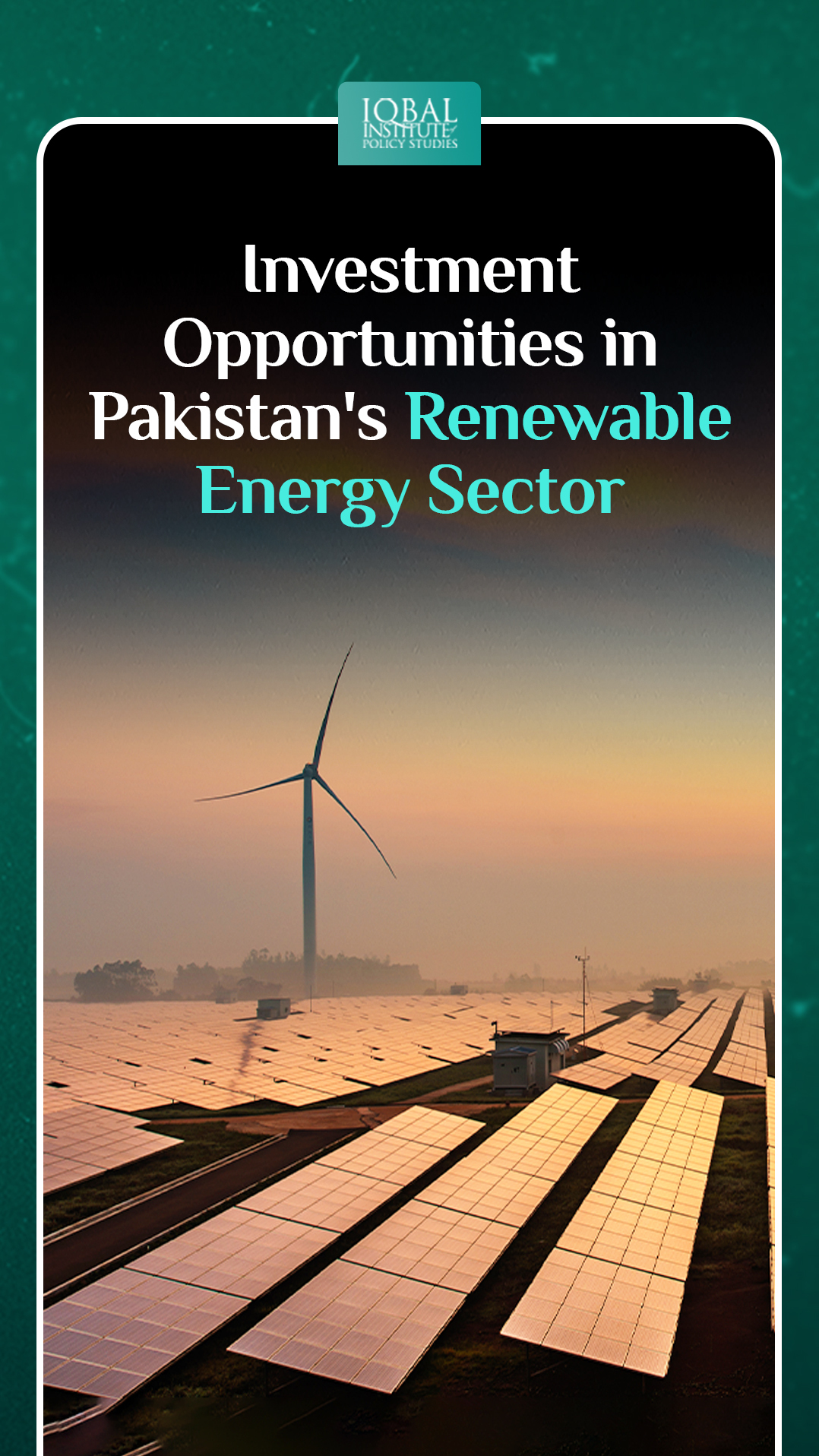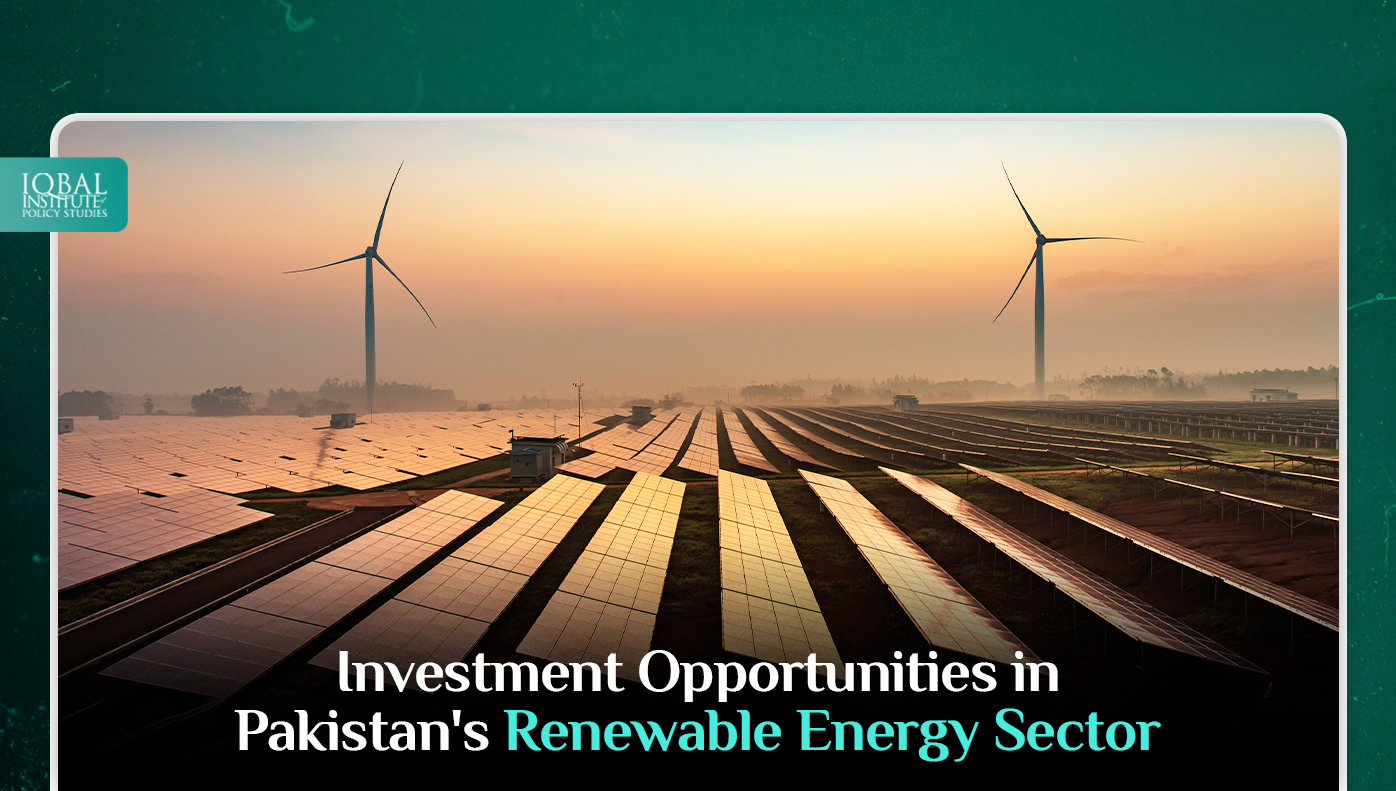Pakistan, a country blessed with abundant natural resources and a growing energy demand, is actively seeking to diversify its energy mix by harnessing the potential of renewable energy sources. With a rapidly growing population and industrialization, the need for sustainable and reliable energy sources has never been greater. In this blog, we will explore the investment opportunities in Pakistan’s renewable energy sector, shedding light on its potential, government initiatives, and the various avenues for investors to participate in this burgeoning industry.
The Need for Renewable Energy in Pakistan
Energy Deficit
Pakistan has long grappled with an energy deficit, resulting in frequent power outages and hindrances to economic growth. The country has traditionally relied heavily on fossil fuels, primarily natural gas and oil, for power generation. However, dwindling natural gas reserves and fluctuating oil prices have made it increasingly necessary to diversify the energy mix.
Environmental Concerns
Like many countries, Pakistan faces environmental challenges, including air pollution and climate change. The burning of fossil fuels for energy production has contributed significantly to these issues. Switching to renewable energy sources can help mitigate environmental damage and reduce the country’s carbon footprint.
Abundant Renewable Resources
Pakistan enjoys an abundance of renewable energy resources, including solar, wind, hydro, and biomass. These resources remain largely untapped, presenting significant opportunities for investors to contribute to the country’s energy transition.
Government Initiatives and Incentives
To incentivize investment in the renewable energy sector, the Pakistani government has introduced several policies and initiatives:
Alternative Energy Development Board (AEDB)
AEDB is the central authority responsible for promoting and regulating renewable energy projects in Pakistan. It offers various incentives, including tax exemptions, tariff incentives, and guarantees for foreign investors.
Net Metering
Pakistan has implemented net metering policies that allow individuals and businesses to generate their own electricity through renewable sources, such as solar panels, and sell excess power back to the grid.
Renewable Energy Policy 2006 and 2019
These policies provide a comprehensive framework for the development of renewable energy projects, including targets for capacity addition and guidelines for tariff determination.
Tariff Structure
The government offers attractive feed-in tariffs, upfront tariffs, and long-term power purchase agreements (PPAs) to renewable energy projects, ensuring a steady return on investment.
Investment Opportunities
Solar Energy
Solar Farms
Large-scale solar farms have immense potential in Pakistan, particularly in the arid regions of Sindh and Baluchistan.
Distributed Solar
Investing in rooftop solar installations for commercial and residential properties is a growing market with a rapid return on investment.
Wind Energy
Wind Farms
Pakistan has substantial wind corridors, primarily along the coastline and in hilly regions like Gharo-Keti Bandar and Jhimpir.
Wind Turbine Manufacturing
Setting up wind turbine manufacturing facilities can capitalize on the growing demand for wind energy infrastructure.
Hydroelectric Power
Small Hydropower Plants
Pakistan has numerous rivers and streams suitable for small-scale hydroelectric projects, often in remote areas with limited access to the grid.
Upgrading Existing Hydropower
Modernizing and upgrading existing hydropower facilities can significantly increase their efficiency and capacity.
Biomass Energy
Biomass Power Plants
Utilizing agricultural residues, organic waste, and animal manure to generate electricity is an untapped opportunity in Pakistan.
Biogas Production
Investments in biogas production can support both energy generation and waste management.
Energy Storage Solutions
Battery Storage
As renewable energy generation can be intermittent, investing in energy storage solutions, such as battery farms, can help stabilize the grid and enhance the reliability of renewable energy sources.
Challenges and Risks
While the renewable energy sector in Pakistan offers significant opportunities, potential investors should be aware of particular challenges and risks:
Policy Uncertainty
Frequent changes in government policies and regulations can pose a significant challenge to investors. The renewable energy sector is heavily reliant on government incentives, feed-in tariffs, and power purchase agreements. Any alterations to these policies can impact project viability and returns. Staying informed about policy developments and maintaining flexibility in project planning is crucial to mitigate this risk.
Infrastructure Constraints
The existing grid infrastructure in Pakistan may require substantial upgrades to accommodate the integration of renewable energy sources effectively. Inadequate infrastructure can lead to transmission and distribution losses, which may affect the overall project economics. Investors should consider the cost and feasibility of grid enhancements when planning their projects.
Financing and Funding
Access to capital can be a significant barrier for renewable energy projects, especially for smaller investors and enterprises. Securing financing at favorable terms can be challenging, and interest rates may be relatively high. Investors should explore various financing mechanisms, including local and international partnerships, to address this challenge.
Currency Exchange Risks
Pakistan’s currency, the Pakistani Rupee (PKR), can be subject to volatility. Investors who invest in PKR but have financing or revenue streams in foreign currencies may face exchange rate risks that can impact their returns. Implementing currency risk management strategies is advisable in such cases.
Security Concerns
Certain regions of Pakistan may be affected by security risks and instability, which can disrupt project implementation and operation. It’s crucial for investors to conduct thorough risk assessments and engage with local authorities to ensure the safety and security of their investments and personnel.
Land Acquisition and Permitting
Acquiring land for renewable energy projects and obtaining the necessary permits can be a lengthy and bureaucratic process in Pakistan. Delays in land acquisition and permitting can result in increased project costs and delays in project development.
Interconnection Challenges
Integrating renewable energy projects into the national grid can be complicated due to technical and regulatory issues. Ensuring a smooth connection to the grid is essential for project success.
Resource Variability
Solar and wind energy generation can be variable and dependent on weather conditions. This intermittency can affect the reliability of power supply, especially during periods of low renewable energy generation. Implementing effective energy storage solutions or hybrid systems to address this variability is crucial.
Competitive Market
The renewable energy sector in Pakistan is becoming increasingly competitive as more investors recognize its potential. This competition can lead to lower tariff rates, which may affect the profitability of projects. Investors should carefully assess market dynamics and project economics before committing to investments.
Environmental and Social Concerns
Environmental and social impact assessments are essential components of renewable energy projects. Investors must adhere to environmental regulations and ensure that their projects do not have adverse effects on local communities or ecosystems.
Operational and Maintenance Challenges
The proper operation and maintenance of renewable energy facilities are critical for long-term performance. Finding skilled technicians and maintaining equipment can be challenging in certain regions of Pakistan.
Conclusion
Pakistan’s renewable energy sector is on the cusp of significant growth and development. With abundant renewable resources, government incentives, and a pressing need for sustainable energy, the opportunities for investment are vast. By investing in solar, wind, hydro, biomass, and energy storage projects, investors can not only contribute to Pakistan’s energy transition but also reap the financial rewards of a burgeoning industry. However, it’s essential to navigate the challenges and risks carefully and stay updated on evolving policies to ensure the success of renewable energy investments in Pakistan. As the country embraces a sustainable energy future, those who invest wisely stand to benefit both economically and environmentally.
This article is written by Radma Nouman. Radma is a research analyst at the Iqbal Institute of Policy Studies (IIPS).



Leave a Reply